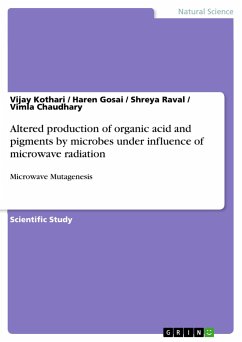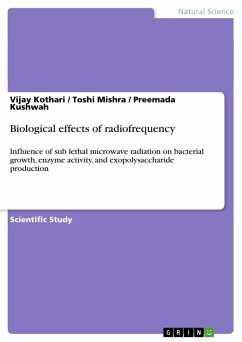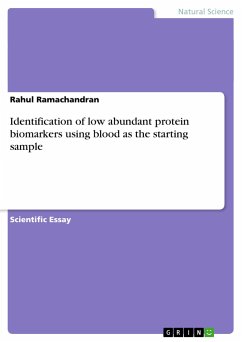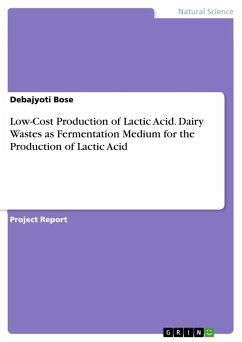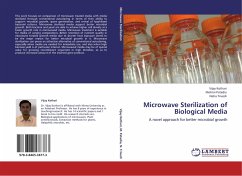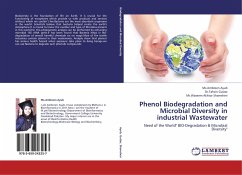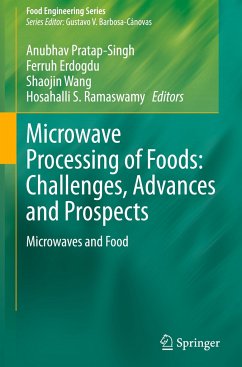
Effect of low power microwave on microbial growth and metabolism
Microwave-Microbe Interaction

PAYBACK Punkte
0 °P sammeln!
Scientific Study from the year 2012 in the subject Biology - Micro- and Molecular Biology, grade: A, Nirma University, course: M.Sc., language: English, abstract: This study aimed at investigating the effect of low power (90 W) microwave radiation (2450 MHz) on microbial growth, enzyme activity (protease and urease), and aflatoxin production. Thermal effect was avoided by keeping inoculum in ice while treating with microwave (for varying duration i.e. 2, 4, and 6 min). After 6 min MW treatment to S. aureus, its growth was stimulated over control by ~10%. Total protease activity in Aeromonas hy...
Scientific Study from the year 2012 in the subject Biology - Micro- and Molecular Biology, grade: A, Nirma University, course: M.Sc., language: English, abstract: This study aimed at investigating the effect of low power (90 W) microwave radiation (2450 MHz) on microbial growth, enzyme activity (protease and urease), and aflatoxin production. Thermal effect was avoided by keeping inoculum in ice while treating with microwave (for varying duration i.e. 2, 4, and 6 min). After 6 min MW treatment to S. aureus, its growth was stimulated over control by ~10%. Total protease activity in Aeromonas hydrophila witnessed a 33% decrease as compared to control after a microwave exposure of 2 min. Similar decrease of 24% in total protease activity of Candida albicans was observed after microwave exposure of 6 min. Staphylococcus aureus lost its urease activity completely after microwave treatment. Aflatoxin production was completely inhibited in Aspergillus parasiticus after microwave exposure of 2, 4, and 6 min. However, it required a 6 min microwave exposure for complete inhibition of aflatoxin production in Aspergillus flavus. Our results positively suggest existence of microwave specific non-thermal effect on microbial growth and metabolism.




